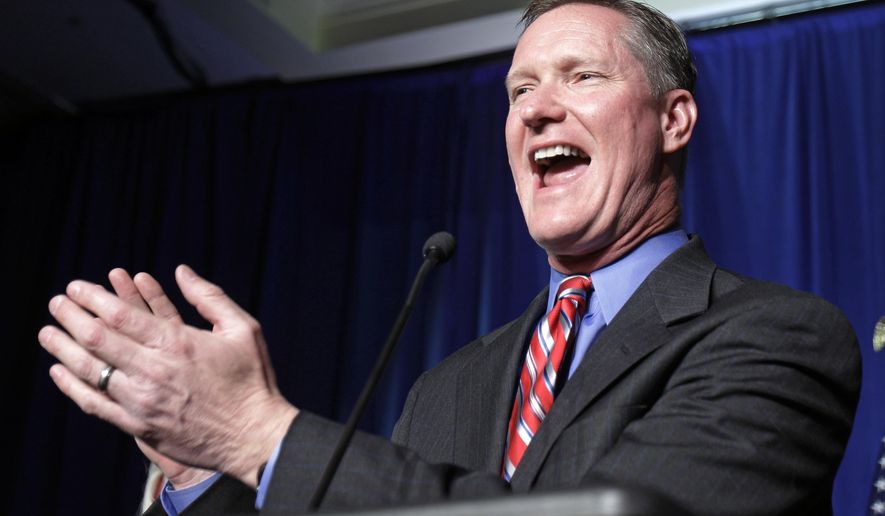The chairman of the Democratic Congressional Campaign Committee (DCCC) on Thursday urged his Republican counterpart to sign a pledge promising not to use hacked or stolen material to help or hurt candidates running in the November midterms, reviving efforts to reach a mutual agreement with the GOP in the wake of talks between parties on the topic recently collapsing.
Rep. Ben Ray Luján, New Mexico Democrat, made the remarks after the chairman of the National Republican Congressional Committee, Rep. Steve Stivers of Ohio, abandoned discussions last week aimed at getting both parties to agree against campaigning with unlawfully obtained material, The Hill reported.
Mr. Luján ultimately signed a pledge agreeing against using hacked or stolen material, and on Thursday he pressed Mr. Stivers to follow suit, the report said.
“I still hope that the NRCC will come forward and make the same commitment that the DCCC did,” Mr. Luján reportedly told journalists.
“I’m still hopeful — as I was clear in the rollout of our agreement that I signed — that there’s an open invitation and I hope the NRCC will change course and agree to these principles,” Mr. Luján added, according to The Hill.
A spokesperson for Mr. Stivers referred to the NRCC when contacted by The Washington Times. A NRCC representative did not immediately respond to a email seeking comment.
Addressing the pledge last week, Mr. Stivers said he decided against signing a formal pact because he believed that Democrats were using the pending agreement to their advantage.
“It wasn’t about the language. We were this close on the language,” Mr. Stivers said Friday. “It was about … trying to use the press for leverage on timing and other stuff, which I just felt like was a breach of what we agreed to at the beginning; to not play this out in the press.”
“We do not want stolen or hacked material. We have no intention of using stolen or hacked material,” Mr. Stivers said at the time.
A copy of the pledged signed and circulated by Mr. Luján says the DCCC “will not participate, aide or encourage hackers or foreign actors in any attempt to influence American elections.”
“We have negotiated with the NRCC in good faith in an effort to release this pledge jointly, but the time for delays and excuses has run out,” Mr. Luján said last week. “This commitment is important to our democracy, I’m proud to sign it and it is my hope that the NRCC will ultimately change course and commit to this same pledge.”
Promising to repudiate hacked or stolen material would potentially avoid a situation similar to 2016, when the DCCC was breached as the result of a hack that culminated in the compromise of internal Democratic material being leaked and becoming fodder used in support of Republicans running for office.
More recently, the Department of Justice filed a criminal indictments in July against a dozen alleged Russia military officers charged in connection with cyberattacks including the DCCC breach and a related intrusion suffered by the Democratic National Committee during the 2016 race.
Both the DCCC and DNC hacks were allegedly conducted by Russian military intelligence officers as part of a state-sponsored campaign targeting the 2016 race and Democratic candidate Hillary Clinton, U.S. officials previously concluded. In addition to breaching Democratic computer systems and publicly leaking stolen material, authorities said Russian operatives meddled in the election in part by weaponizing social media platforms to spread propaganda and disinformation leading up to the election.
Russia has denied meddling in the 2016 race.
• Andrew Blake can be reached at ablake@washingtontimes.com.




Please read our comment policy before commenting.